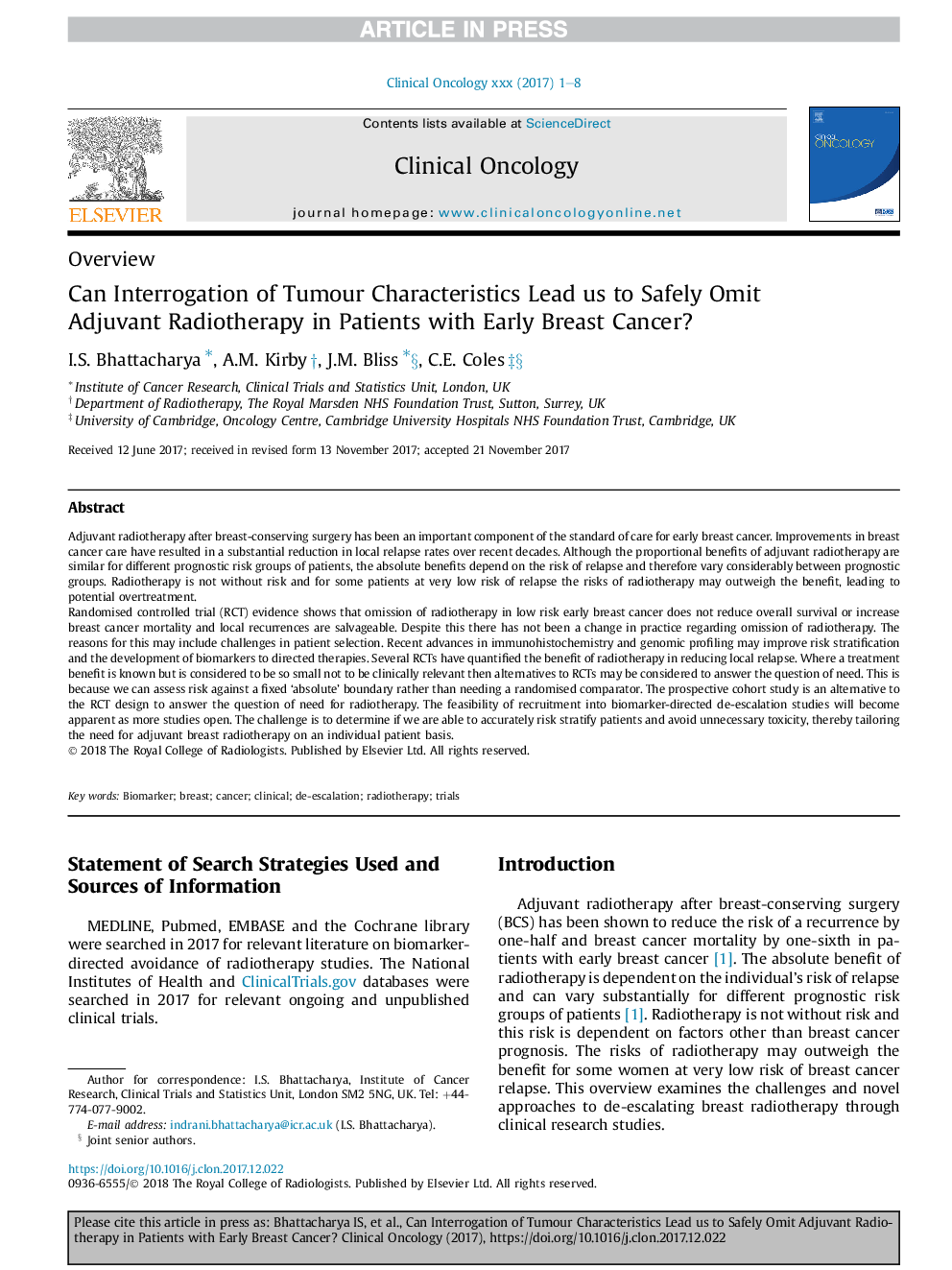| Article ID | Journal | Published Year | Pages | File Type |
|---|---|---|---|---|
| 8786178 | Clinical Oncology | 2018 | 8 Pages |
Abstract
Randomised controlled trial (RCT) evidence shows that omission of radiotherapy in low risk early breast cancer does not reduce overall survival or increase breast cancer mortality and local recurrences are salvageable. Despite this there has not been a change in practice regarding omission of radiotherapy. The reasons for this may include challenges in patient selection. Recent advances in immunohistochemistry and genomic profiling may improve risk stratification and the development of biomarkers to directed therapies. Several RCTs have quantified the benefit of radiotherapy in reducing local relapse. Where a treatment benefit is known but is considered to be so small not to be clinically relevant then alternatives to RCTs may be considered to answer the question of need. This is because we can assess risk against a fixed 'absolute' boundary rather than needing a randomised comparator. The prospective cohort study is an alternative to the RCT design to answer the question of need for radiotherapy. The feasibility of recruitment into biomarker-directed de-escalation studies will become apparent as more studies open. The challenge is to determine if we are able to accurately risk stratify patients and avoid unnecessary toxicity, thereby tailoring the need for adjuvant breast radiotherapy on an individual patient basis.
Related Topics
Health Sciences
Medicine and Dentistry
Oncology
Authors
I.S. Bhattacharya, A.M. Kirby, J.M. Bliss, C.E. Coles,
